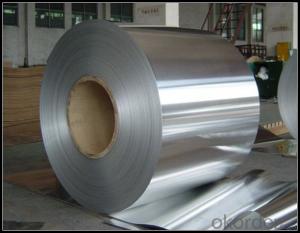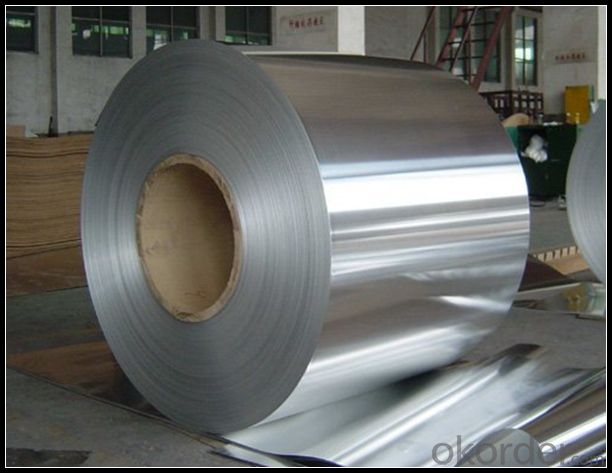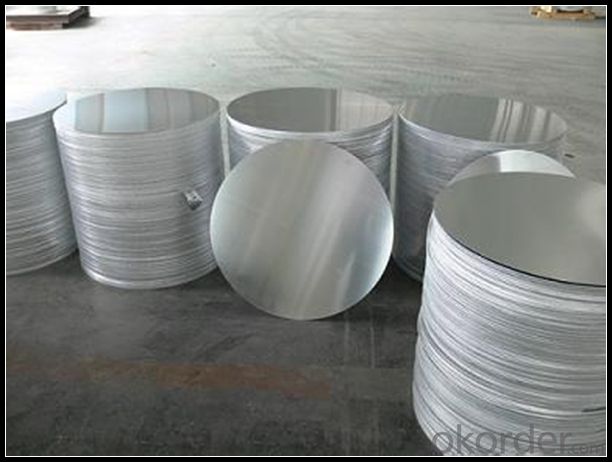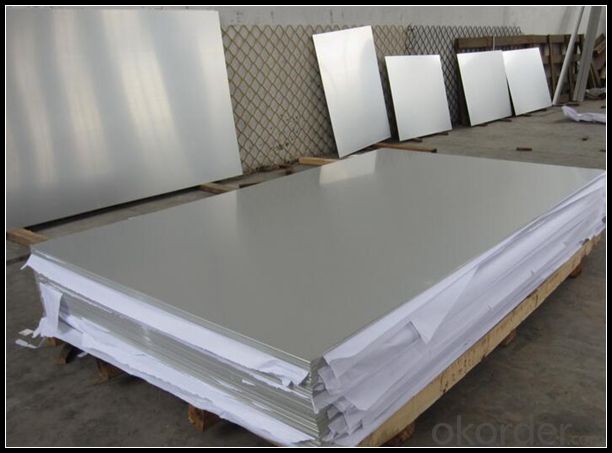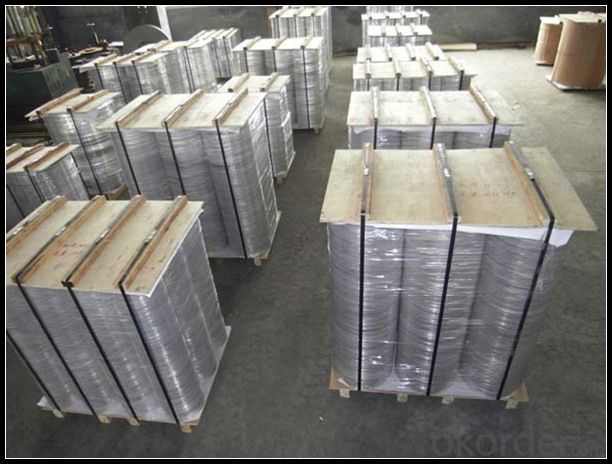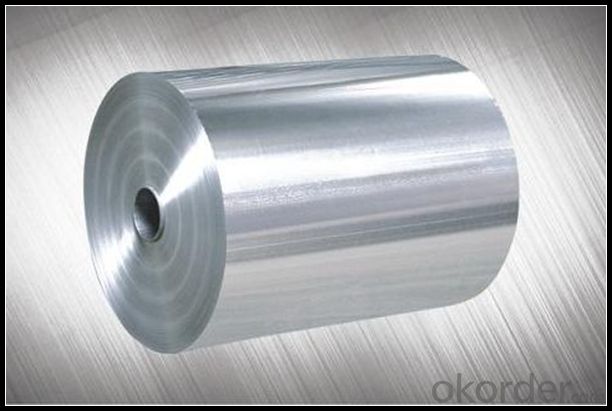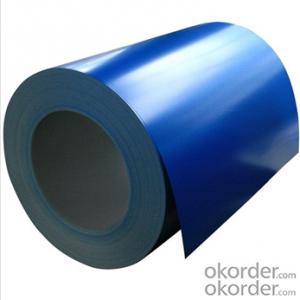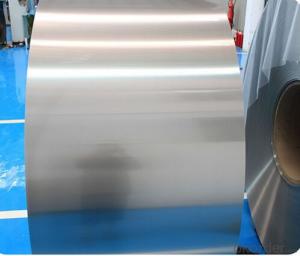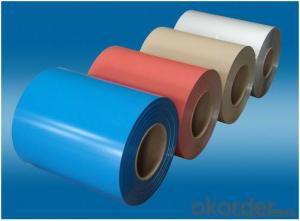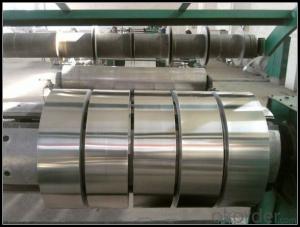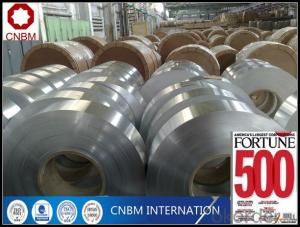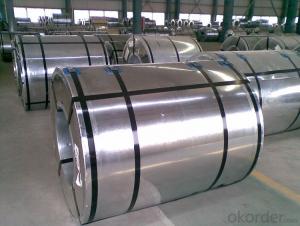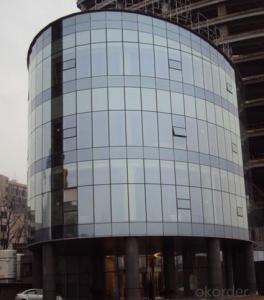Pvc Aluminum Coil - High Quality Aluminum Coil/Aluminum Plate from Chinese Factory
- Loading Port:
- Qingdao
- Payment Terms:
- TT OR LC
- Min Order Qty:
- 4 m.t.
- Supply Capability:
- 3000 m.t./month
OKorder Service Pledge
OKorder Financial Service
You Might Also Like
Specification
1. Specification of Aluminum Coil
1) Alloy | AA1050, AA1060, AA1070, AA1100, AA3003, AA3004, AA3105, AA5005, AA5052, AA8011, AA8079 etc |
2) Temper | O/H12/H14/H1/H18/H32/H34/H36/H38/T6/T651/T3/T351 etc |
3) Thickness | 0.1mm to 6mm |
4) Width | 20mm to 3300mm |
5) Coil weight | 100kgs to 6 tons depends on actual requirement |
6) Core material | Aluminum |
7) Coil Inner diameter | 76mm, 152mm, or as required |
2. Application of Aluminum Coil
(1).Interior: wall cladding, ceilings, bathrooms, kitchens and balconies, shutters, doors...
(2).Exterior: wall cladding, facades, roofing, canopies, tunnels,column covers , renovations...
(3).Advertisement: display platforms, signboards, fascia, shop fronts.
3. Feature of Aluminum Coil
*Such coil is specially designed to replace aluminum ingot, due to the high export tax of aluminum ingot, the coil has better price than ingot.
*This type of coil can fit customer's remelting furnace just like ingot, no need to make any change to the production line that was previously used for ingot. The standard coil size and weight is very suitable for the feed gate of furnace.
*This type of coil causes less material wastage than ingot when remelted.
*Our coil is made directly from ore, no need to go though the ingot making process, quality is much better than other suppliers who use ingot scrap to make coil.
Be free from Oil Stain, Dent, Inclusion, Scratches, Stain, Oxide Dicoloration, Breaks, Corrosion, Roll Marks, Dirt Streaks and other defect which will interfere with use
4. Certificates:
SGS and ROHS(if client request, paid by client), MTC(plant provided), Certificate of Origin(FORM A, FORM E, CO), Bureau Veritas and SGS (if client request, paid by client), CIQS certificate
5. Image of Aluminum Coil
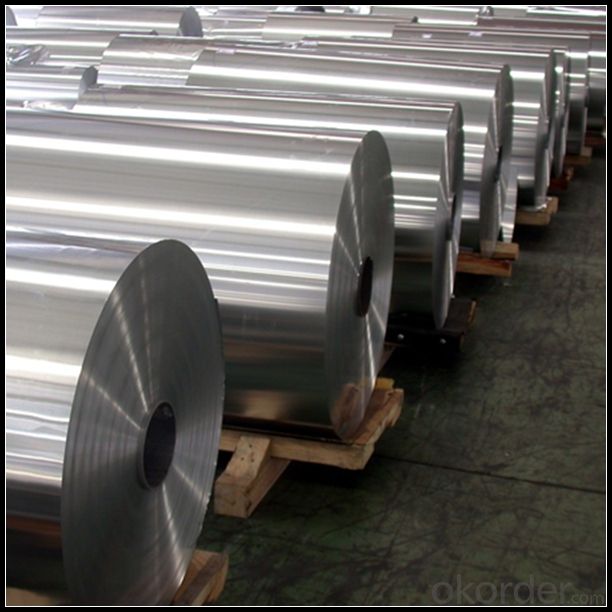
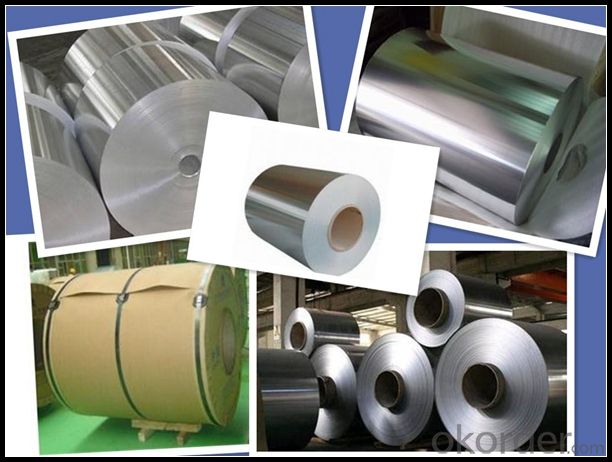
6. About Our Company
CNBM International Corp., established in 2004, is the business entity for trade and logistic of CNBM Group.
CNBM International is highly recognized by its business partners and clients all over the world and has established good business relationship with the customers in over 160 countries and regions all over the world.
7. FAQ
1) What is the delivery time?
Dpends on actual order, around 30 to 35 days
2)What is the QC system:
We have QC staff of 20 persons and advanced equipment, each production is with MTC traced from Aluminum ingot lot.
3) What market do you mainly sell to?
Australia, America, Asia, Middle East, Western Europe, Africa etc
4)What are your payment terms?
We accept L/C, D/A, D/P, T/T, West Union,etc.
5)What is the MOQ?
3 Tons
- Q: Are aluminum coils compatible with different welding methods?
- Different welding methods can be used with aluminum coils. Aluminum is a versatile metal that can be welded using techniques like gas tungsten arc welding (GTAW) and gas metal arc welding (GMAW). These methods are commonly used for welding aluminum coils because they produce high-quality welds. GTAW, also known as TIG welding, is particularly suitable for aluminum. It allows for precise control of heat input and produces excellent weld quality. TIG welding uses a non-consumable tungsten electrode and an inert gas like argon to protect the weld zone from contamination. GMAW, also known as MIG welding, is a faster process that uses a consumable wire electrode and a shielding gas to protect the weld pool. It is widely used in industrial applications due to its efficiency and ease of use. In addition to TIG and MIG welding, other methods like laser welding and friction stir welding can also be used for aluminum coils, depending on specific requirements. Proper preparation is crucial for successful welds. Cleaning and surface treatment of the aluminum coils are important to remove contaminants or oxide layers that could affect the welding process. Overall, different welding methods can be used with aluminum coils, and the choice depends on factors like desired weld quality, production requirements, and available skills and equipment.
- Q: This question asks for a comparison of various types of insulation materials, highlighting their unique characteristics and differences.
- <p>Different types of insulation materials vary in their properties such as thermal resistance (R-value), fire resistance, moisture resistance, and environmental impact. Fiberglass is a common, cost-effective option with good thermal resistance but can be irritating to the skin and respiratory system. Cellulose insulation is made from recycled paper and has good sound absorption but may be less fire resistant. Foam insulation like spray foam offers excellent insulation and air sealing but can be more expensive and harder to install. Mineral wool is fire-resistant and durable but may be less thermally efficient. Each type has its advantages and drawbacks, and the choice depends on factors like cost, environmental impact, and specific insulation needs.</p>
- Q: How do aluminum coils contribute to indoor air quality?
- Aluminum coils play a crucial role in maintaining and improving indoor air quality in various ways. Firstly, aluminum coils are commonly used in HVAC systems, which are responsible for heating, ventilation, and air conditioning in buildings. These coils help in the efficient transfer of heat and cooling, ensuring a comfortable indoor environment. By effectively regulating the temperature and humidity, aluminum coils help prevent the growth of mold, mildew, and other harmful microorganisms that thrive in damp and warm conditions. This, in turn, prevents the release of airborne spores and allergens that can negatively impact indoor air quality. Moreover, aluminum coils are highly resistant to corrosion and do not easily accumulate dirt, dust, or debris. This feature is crucial as dirty coils can lead to reduced airflow and inefficient cooling or heating, resulting in poor air quality. By utilizing aluminum coils, HVAC systems can maintain optimal performance, ensuring proper air circulation and filtration. This helps in removing pollutants, such as dust, pollen, pet dander, and volatile organic compounds (VOCs) from the indoor air, thus contributing to a healthier and cleaner environment. Another important aspect is that aluminum is a recyclable material, making it an environmentally friendly choice. By opting for aluminum coils in HVAC systems, we contribute to the reduction of waste and the conservation of natural resources. This aligns with sustainable practices and supports efforts to minimize the environmental impact of our indoor air conditioning systems. In summary, aluminum coils significantly contribute to indoor air quality by promoting efficient temperature and humidity control, preventing the growth of harmful microorganisms, facilitating proper air circulation, and enabling effective filtration. Additionally, their durability and recyclability make them an excellent choice for maintaining a healthy and sustainable indoor environment.
- Q: Can aluminum coils be used in the production of architectural façades?
- Yes, aluminum coils can be used in the production of architectural façades. Aluminum is a popular choice for façades due to its lightweight nature, durability, and versatility. Aluminum coils can be easily formed and shaped to create various architectural designs, making them suitable for use in the construction of façades.
- Q: Can aluminum coils be used for roofing?
- Certainly, roofing can be done using aluminum coils. Aluminum is widely regarded as a top preference for roofing materials because of its sturdy composition, lightweight properties, and exceptional resistance to corrosion. In a wide range of roofing applications, including residential, commercial, and industrial structures, aluminum roofing coils are frequently employed. They offer exceptional safeguarding against severe weather conditions like intense rainfall, snowfall, and powerful winds. Furthermore, aluminum coils possess energy-efficient attributes as they possess the ability to reflect solar heat, thereby aiding in preserving a cool indoor environment and reducing energy expenditures. All in all, aluminum coils present a dependable and enduring roofing solution.
- Q: Hello, I'd like to ask you a question. Can the aluminum coil be continuously pressed and cooled by kerosene?
- Yes, water and oil are not miscible. They must be emulsified
- Q: Can aluminum coils be used in automotive heat shields?
- Yes, aluminum coils can be used in automotive heat shields. Aluminum is a lightweight and highly conductive material that can effectively dissipate heat. Additionally, it has excellent corrosion resistance properties, which makes it suitable for automotive applications where heat shields are exposed to high temperatures and harsh environments.
- Q: What specific cleaning procedures should be followed for aluminum coils post-usage to ensure their longevity and functionality?
- <p>After using aluminum coils, it's important to clean them properly to maintain their performance and longevity. Typically, a mild detergent and warm water solution can be used to gently clean the coils. Avoid abrasive materials or harsh chemicals that could scratch the surface. Rinse thoroughly to remove all detergent residues. For stubborn residues, a soft cloth or sponge can be used. It's also crucial to dry the coils completely to prevent corrosion. Regular inspection and maintenance, including cleaning, will help extend the life of aluminum coils.</p>
- Q: Can aluminum coils be used in the production of aluminum sunshades?
- Yes, aluminum coils can be used in the production of aluminum sunshades. Aluminum coils are typically used as a starting material in the manufacturing process of aluminum sunshades. These coils are made from high-quality aluminum, which is known for its lightweight and durable properties. The coils are then fabricated and shaped into the desired form for the sunshade, whether it be slats, louvers, or a solid panel. Aluminum is a popular choice for sunshades due to its corrosion resistance and ability to withstand various weather conditions. Additionally, aluminum is easily recyclable, making it an environmentally friendly material for sunshade production. Overall, aluminum coils are an essential component in the production of aluminum sunshades, providing strength, durability, and aesthetic appeal to these shading structures.
- Q: How do aluminum coils impact energy efficiency?
- Aluminum coils play a vital role in enhancing energy efficiency across various applications, such as heating, ventilation, and air conditioning (HVAC) systems, refrigerators, and heat pumps. The outstanding heat transfer properties of aluminum are the primary reason for their positive impact on energy efficiency. The excellent heat conductivity of aluminum enables it to quickly absorb and release thermal energy. In HVAC systems, aluminum coils effectively transfer heat between the indoor and outdoor units. This efficient heat transfer reduces the system's workload, enabling it to operate more efficiently and consume less energy. Moreover, aluminum coils possess the advantages of being lightweight and having a large surface area, further enhancing their heat transfer capabilities. By reducing the overall weight of the system, their lightweight nature results in lower energy consumption. The increased surface area promotes better contact between the air and the coils, facilitating more effective heat exchange. Another benefit of aluminum coils is their resistance to corrosion, a common issue in HVAC systems. Corrosion can hinder the efficiency of heat transfer, leading to increased energy consumption. The corrosion resistance of aluminum coils ensures long-lasting performance, maintaining their efficiency and reducing the need for frequent maintenance or replacement. To summarize, aluminum coils significantly contribute to energy efficiency by facilitating efficient heat transfer, reducing the workload on HVAC systems, and minimizing energy consumption. Their lightweight nature, large surface area, and corrosion resistance further enhance their positive impact on energy efficiency.
Send your message to us
Pvc Aluminum Coil - High Quality Aluminum Coil/Aluminum Plate from Chinese Factory
- Loading Port:
- Qingdao
- Payment Terms:
- TT OR LC
- Min Order Qty:
- 4 m.t.
- Supply Capability:
- 3000 m.t./month
OKorder Service Pledge
OKorder Financial Service
Similar products
Hot products
Hot Searches
Related keywords
